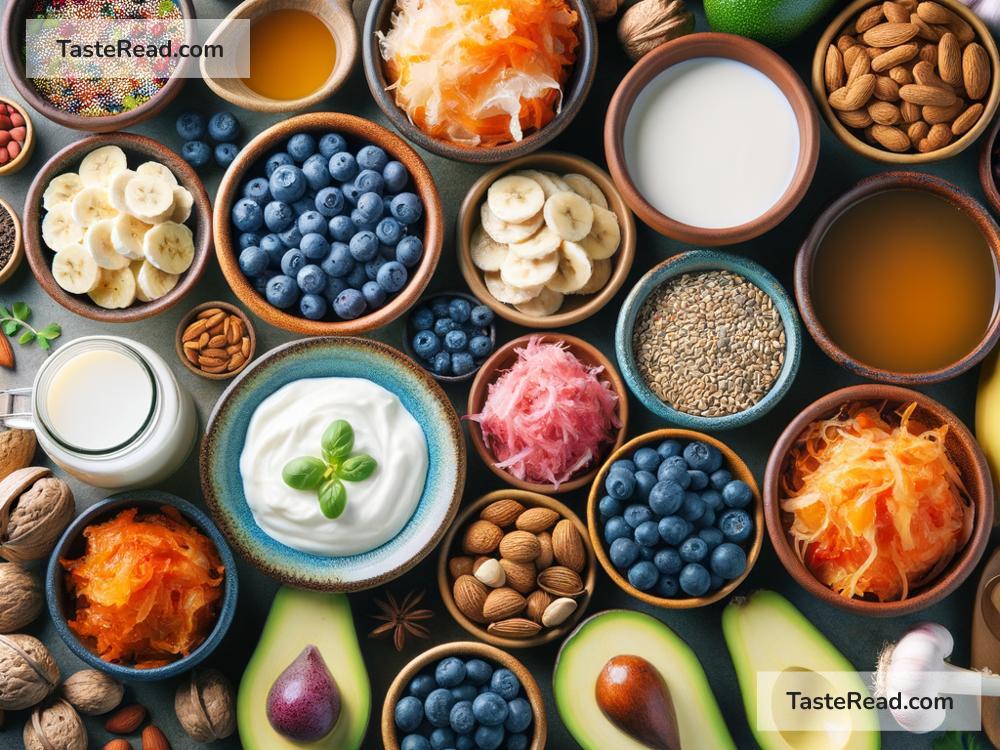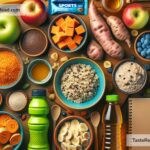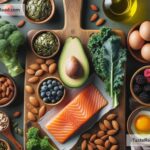Foods That Enhance Gut Permeability: What You Need to Know
Your gut plays a crucial role in keeping you healthy. It breaks down food into nutrients, absorbs what your body needs, and serves as a protective barrier against harmful substances. But sometimes, this barrier can become “leaky” — a condition known as increased gut permeability or “leaky gut.” When this happens, poorly digested food particles, toxins, and bacteria can leak through the intestinal walls and enter the bloodstream, potentially causing inflammation, allergies, digestive issues, and other health problems.
While some factors like stress, infections, and certain medications can cause leaky gut, the foods you eat also play a significant role. Some foods may contribute to increased gut permeability and make your symptoms worse. In this blog, we’ll take a closer look at the kinds of foods that can enhance gut permeability and discuss ways to restore gut health.
Foods That May Increase Gut Permeability
Certain types of food can weaken the gut lining and increase its permeability. Here are the main culprits:
1. Processed Foods
Many processed foods contain additives, preservatives, and artificial chemicals that can irritate the gut lining. These substances may trigger inflammation and weaken the gut’s ability to act as a protective barrier. Additionally, processed foods are often high in unhealthy fats and sugars, making them difficult for your digestive system to handle.
2. Refined Sugar
Sugar is a major contributor to gut problems. It feeds harmful gut bacteria, which can multiply and throw off the balance of good and bad bacteria in your digestive system. This imbalance, known as dysbiosis, can lead to gut inflammation and increased permeability. High-sugar diets have also been linked to chronic illnesses such as diabetes and heart disease, so cutting back on added sugars is a smart move for your overall health.
3. Gluten
Gluten is a protein found in wheat, barley, and rye. For people with celiac disease or gluten sensitivity, consuming gluten can damage the gut lining and make it more permeable. Even in people without gluten intolerance, eating too much gluten may irritate the intestines and contribute to symptoms of bloating or discomfort.
4. Alcohol
Drinking alcohol excessively is a well-known cause of intestinal damage. Alcohol can irritate the gut lining, impairing its ability to function effectively as a barrier. Over time, it can lead to the overgrowth of harmful bacteria and increased gut inflammation, both of which contribute to leaky gut.
5. Dairy Products
Dairy products like milk, cheese, and yogurt can be problematic for some people, especially those who are lactose intolerant. For others, certain proteins found in dairy, such as casein, can irritate the gut lining. If you notice digestive issues after eating dairy, consider limiting your intake or exploring alternatives such as almond or oat milk.
6. Fried and Fatty Foods
Foods that are high in unhealthy fats, especially trans fats, can disrupt the gut barrier. Eating excessive amounts of fried or greasy foods may trigger inflammation and interfere with proper digestion. These types of fats also promote the growth of harmful gut bacteria, which contributes to dysbiosis and gut issues.
7. Additives in Packaged Food
Many packaged foods contain emulsifiers such as carboxymethylcellulose or polysorbate 80, which are added to improve texture and shelf life. Studies suggest that these additives can irritate the gut lining and promote gut inflammation. Be sure to check labels and avoid additives wherever possible.
How to Restore Gut Health
If you suspect that your gut permeability has been affected by certain foods, don’t worry — you can take steps to heal your gut and improve its function. Here are some helpful tips:
1. Eat Whole and Natural Foods
Focus on eating fresh fruits, vegetables, whole grains, lean proteins, and healthy fats. Whole foods are less likely to contain additives or irritants that can harm your gut lining.
2. Add Probiotic-Rich Foods
Probiotics are good bacteria that help balance your gut microbiome and improve digestion. Foods like yogurt (with live cultures), kefir, sauerkraut, kimchi, and kombucha are excellent sources of probiotics.
3. Include Prebiotic Foods
Prebiotics are fibers that feed the good bacteria in your gut. Some great prebiotic foods include garlic, onions, bananas, and asparagus.
4. Avoid Trigger Foods
If certain foods are causing digestive discomfort or inflammation, try eliminating them from your diet. Keep a food diary to track what you eat and monitor how your body reacts.
5. Stay Hydrated
Drinking plenty of water helps flush toxins from your gut and aids digestion. Aim for 8–10 glasses of water a day to stay hydrated.
6. Manage Stress
Stress can significantly impact gut health. Practice relaxation techniques like deep breathing, meditation, or yoga to reduce stress and support a healthy gut.
7. Consider Supplements
Certain supplements, such as L-glutamine, digestive enzymes, or omega-3 fatty acids, may help heal the gut lining and reduce inflammation. Talk to your doctor before adding supplements to your routine.
Final Thoughts
Gut health is essential for overall well-being, and the foods you eat play a big role in keeping your gut lining strong. While some foods can enhance gut permeability and make symptoms worse, others can help repair the damage and restore balance. By avoiding processed foods, reducing your sugar intake, and eating nutrient-rich whole foods, you can support a healthier digestive system and reduce the risk of leaky gut. If you’re experiencing ongoing gut issues, consider working with a healthcare professional to create a tailored plan for improving your gut health.
Remember, your gut is your body’s gateway to good health – treat it with care!


